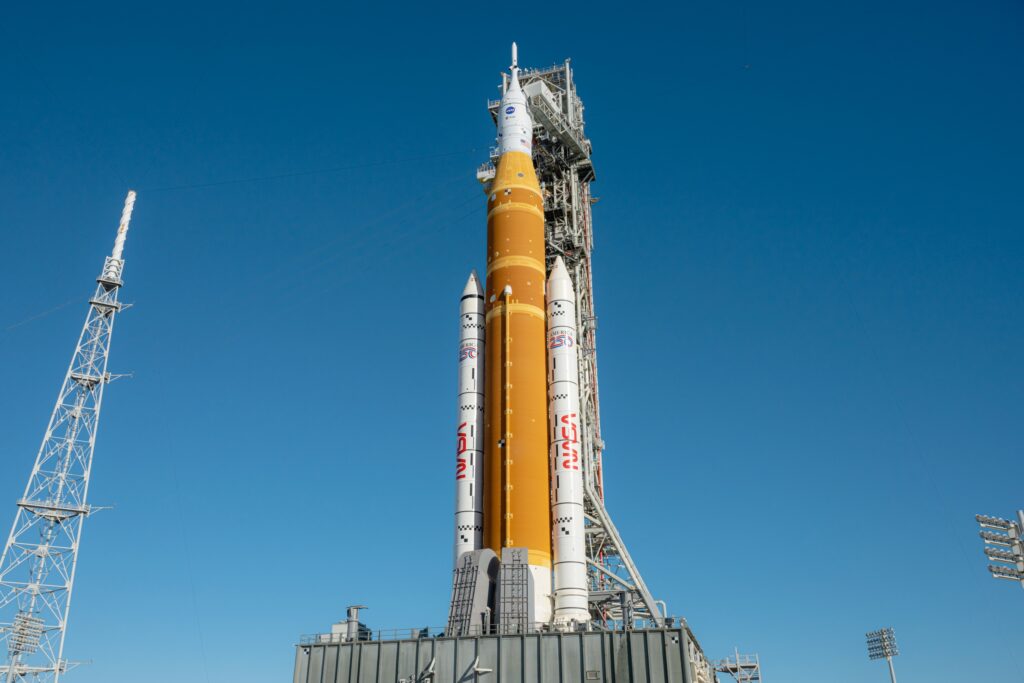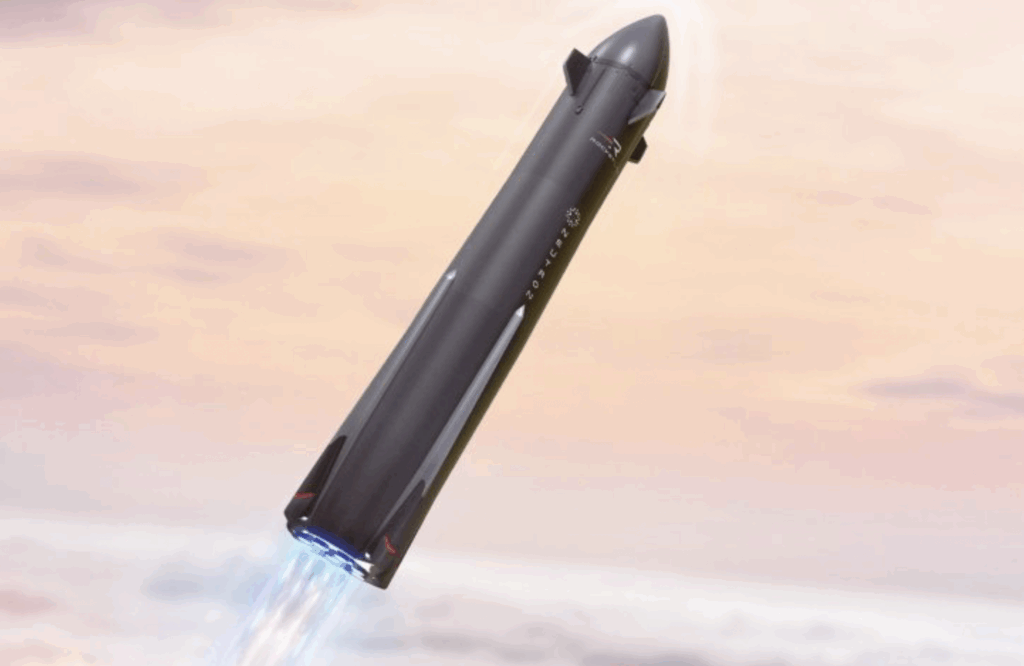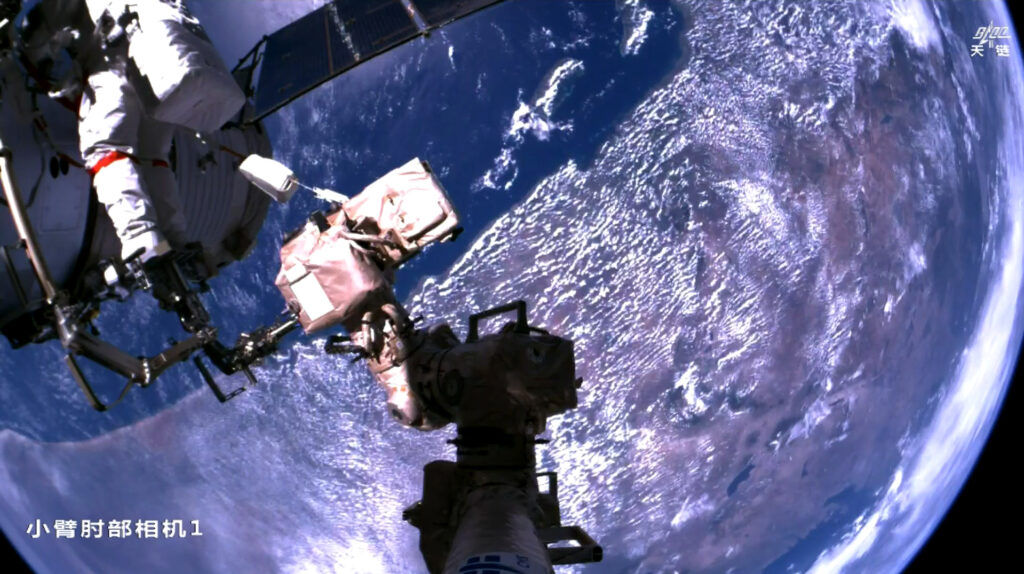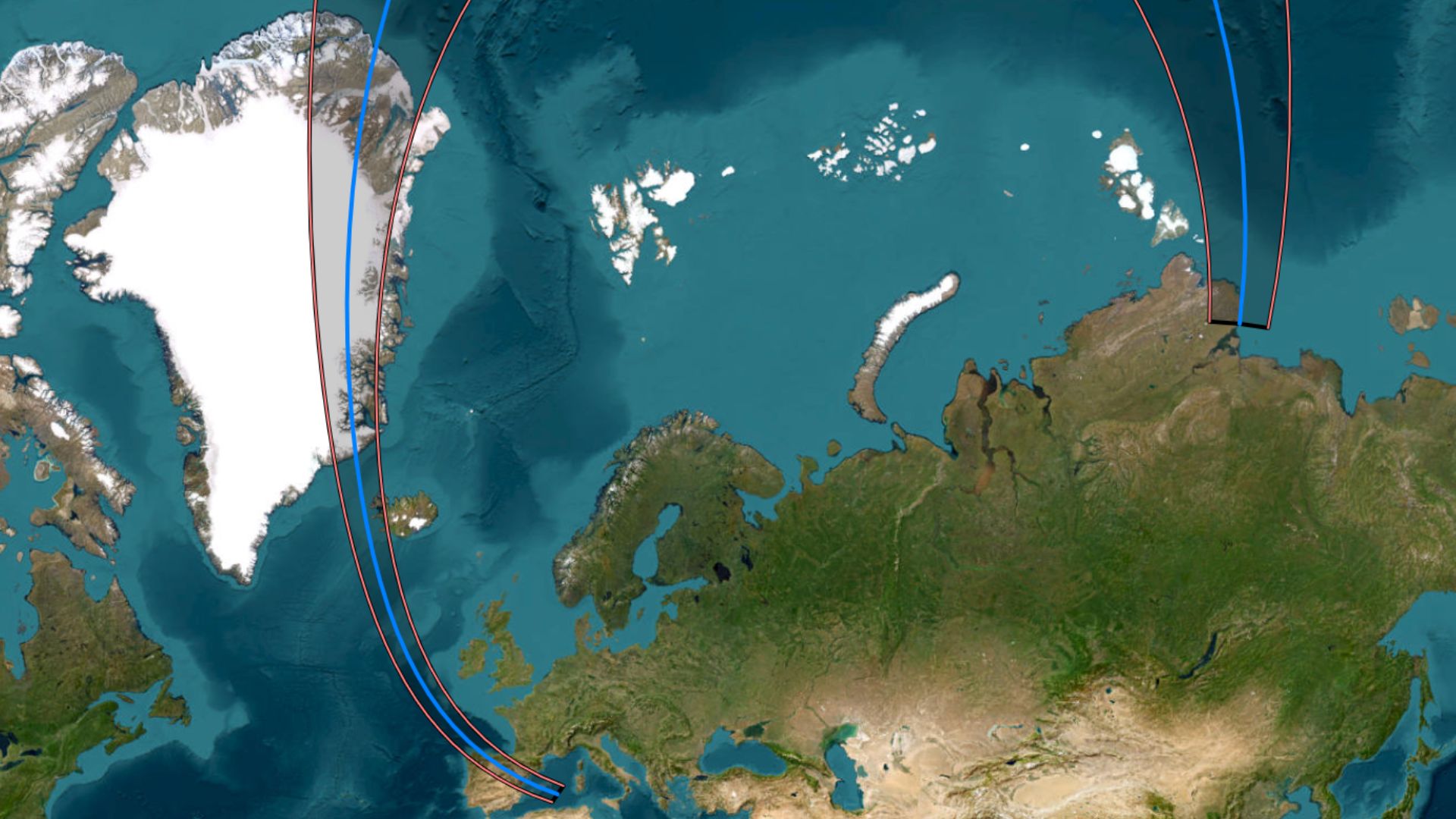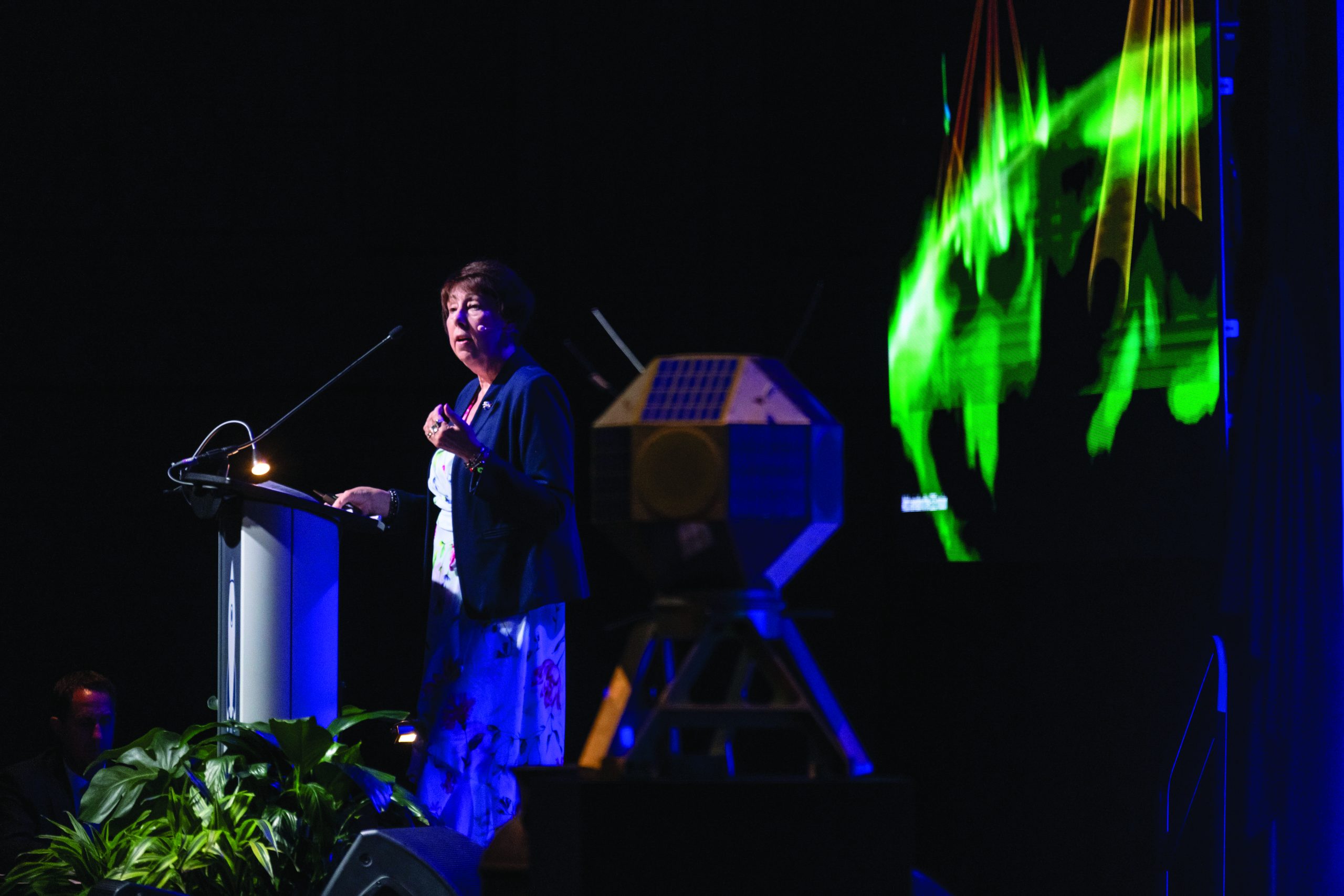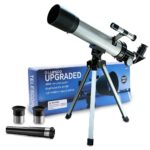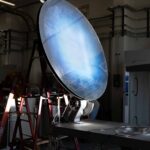Now Reading: Tom Walkinshaw on pocket-sized satellites
-
01
Tom Walkinshaw on pocket-sized satellites
Tom Walkinshaw on pocket-sized satellites
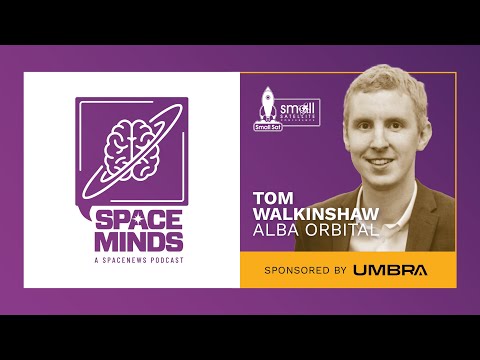
This week SpaceNews is at the SmallSat Conference in Salt Lake City, Utah. In this episode of Space Minds, host Mike Gruss speaks with Tom Walkinshaw, founder and CEO of Alba Orbital, a Scotland-based manufacturer specializing in pocket-sized satellites known as PocketQubes.
Their discussion covers the growth of the small satellite sector, trends in satellite miniaturization, challenges of launch and supply chains, and strategies for building reliable, commercially viable spacecraft.
American-made. Umbra-rated. Delivered faster. Umbra is reshaping what’s possible in and through space — one component, satellite, and image at a time. We design, build, and operate the most capable radar constellation in the market, delivering unmatched access, clarity, and resilience for critical missions. Operating at every layer — from sensors to spacecraft to software — we accelerate innovation and operational advantage for those who can’t aIord to wait. Now, through our new Space Systems line, we oIer the same trusted, flight-proven hardware we use ourselves — engineered for power, precision,resilience, and control. Built to endure. Designed to deliver. Umbra puts control where it matters most.
Show notes and transcript
Click here for Notes and Transcript
Time Markers
00:00 – Episode introduction
01:01 – Guest introduction
01:37 – What are you looking for at SmallSat?
02:44 – What are PocketQubes
03:47 – On miniaturization
04:58 – On reliability
06:25 – Rideshare launch reliability
07:56 – Supply chain issues
08:39 – On tariffs
10:35 – On competition
12:18 – On a rapidly changing space community
Transcript – Tom Walkinshaw Conversation
Mike Gruss – I’m Mike Gruss from SpaceNews, and welcome to our Space Minds podcast from SmallSat, with support from Umbra.
Today, I’m joined by Tom Walkinshaw, who is the founder and CEO of Alba Orbital based in Scotland. Tom, thanks so much for joining us. We have a team of reporters here in Salt Lake City. We’re going to be listening for a few topics, and we’re going to talk about some of these, reliability versus cost, the ever present challenge of launch, supply chain questions. So we’re going to get into some of that, sure, but I want to start with, you’ve been at this show before, yeah, what are you looking for on the show floor, and what are when the conversations you’re having? What are things that you’re talking to folks about?
Tom Walkinshaw – Well, I think the other big thing is, obviously, it’s moved to Salt Lake this year, and it’s a much, much bigger event than there’s ever been thrown before. You know, it’s really a huge event. So it’s trying to figure out, obviously, just the new schedule and new venue and all these sort of just basic logistics of running, like conference stands and things. But I think, just generally, like obviously, just the growth of the sector in general, and just trying to see where the wind is blowing in general. Like obviously the last few years been huge for space, and we’ve seen the transport program has really opened up a lot of launch opportunities for folks, and that’s been huge. And there’s been a lot of obviously small launch and miniaturization of satellites. So it’s just obviously interesting just to see what’s happening and what the new trends are, and then what, where people are building and flying stuff, and where people are actually making the business case, and actually going from investment money into actual real businesses and not just sort of concepts.
Mike Gruss – Yeah. Where do you see those winds blowing?
Tom Walkinshaw – Well, I’m obviously very biased towards small satellites in PocketQubes. So we specialize.
Mike Gruss – Tell us about what that is.
Tom Walkinshaw – Sure, yeah, so pockets are the smallest satellites that fly in space regularly. So these are five centimeter cube satellites, and they get modular, and you get double, triple sized pocket cubes. So we’ve flown 53 satellites so far, over nine missions or nine launches. We just integrated our 100th PocketQube, or the 100th PocketQube to fly, and I’ll be flying later in a year, hopefully with our SpaceX transport mission.
Mike Gruss – So yeah, how is big is that with just with your hand?
Tom Walkinshaw – Well, they’re very small. Should have brought one with me, but they’re sort of that size, but they can maybe get to that size or that size. And we started bringing down commercial imagery now, and our flagship satellite called unicorn, so that’s really exciting. So we started putting out, like we took a picture of Utah before we came here, we put out on our social media and stuff. So it’s kind of awesome to start to to get some commercial usage of the actual platforms now. And we have bunch of customers lined up for that. So that’s really exciting
Mike Gruss – Ah, so meaning the winds are you think, hey, going to move toward, smaller and smaller that miniaturization?
Tom Walkinshaw – Yeah, and I think there’s, it’s definitely, like, it depends what you want to do, obviously, like, so we’re never going to compete with like James Webb in terms of, like, resolution on a PocketQube. But there’s certainly, like, a lot of missions that either would never happen or certainly a lot of the in the US, particularly a lot of university level stuff’s really dependent on CLSI, and they’re having NASA’s obviously going through a lot challenges just now in terms of their funding.
So we’re seeing, like, a lot of folks coming directly to us because they want to fly their, like, first satellite or their second satellite, get some heritage, get some credibility. If it’s a startup, just make that next funding round, and then if they want to do more pocket cubes down the road, they can, like, build a consulate. Constellation, or if they want to go bigger and start doing CubeSats and microsats, or old school, big, small sets which are much, much bigger than they have some credibility and some leverage. So we see a lot of folks kind of start off in the pockets now and transition into the bigger stuff. And it’s sort of an easier stepping stone, perhaps because there’s a lower cost, lower barrier to entry, and then people are now ramping up onto bigger missions as well.
Mike Gruss – So how does reliability fit into that? Because I would imagine that’s a conversation you have questions about, is this gonna Is this gonna do what I needed to do and last as long as I need to last.
Tom Walkinshaw – Yeah. I mean, so certainly PocketQubes in general. Anyway, any new technology, reliability is maybe not like the number one driver. It’s just, can we make it happen? And certainly, we’ve been through a lot of trials and tribulations to try and get our satellites reliable. And in our last satellite, we deployed off the last transporter there, it’s been up for, I think it’s not reset in like, 130 days. So it’s been running non stop. So we finally, I. Sort of cracked the reliability code in our our satellite called unicorn. And yeah, you can make these systems reliable. It just takes a bit of, a bit of effort and a bit of thought. And to be honest, you have to fly and try.
You know, that’s kind of what we’re all about, is fly it, try it, learn it, and go again and take what you’ve learned from your previous flight. And it’s really hard to guess where you’ve messed up the design to be honest, or what factor you didn’t wait quite highly enough. And the bigger the mission, the harder is to have that experimental type mentality. If you go smaller, you can you can try a few things, you can take more risks, and you can afford to take some losses, so long as you ultimately like take the feedback to get there in the end. And that’s kind of what we’ve been doing with our imaging service and and we’re now finally getting to a point that we have basically the world’s smallest commercial imaging satellite that’s weighs a kilogram, and we’re taking commercial imagery of of Earth, you know. So it’s kind of nuts.
Mike Gruss – When you look at launch, that’s, you know, it’s, everyone wants to get, everyone wants to launch, they want to put they want to have those repetitions to see if their technology is working. But launch is also expensive, and sometimes there’s also questions about reliability, particularly with sometimes you know, so how are, how are you looking at that going forward?
Tom Walkinshaw – Yeah, we’re we do a lot of launch brokering. So, like, we were probably one of the larger number of, like launch brokers by number of satellites. We launched 53 sort of right share missions so far. I mean, I think transport, obviously has been a huge game changer in the last few years. That’s really the big thing. That’s probably really moved it from more conceptual to like an actual, real business. So hopefully, you know, transport continues and is successful the way it has been so far, there’s obviously been Rocket Lab. We’ve flown with Rocket Lab a couple of times. They’re now getting into quite a big cadence, so that’s great to see. I think the other folks are, they’re kind of engine there. But obviously, with the new rocket program, there’s always a lot of risks, and obviously, business case, it’s really hard to compete with, like the incumbents in any industry, especially space. It’s just such a tough game. So certainly, I wouldn’t want to be competing directly SpaceX on launch. I mean, that seems like a really hard game, yeah. And, you know, fair play to the people that want to do that, but I wouldn’t suggest it for an easy life, or, yeah, a successful business. Yeah.
Mike Gruss – How about the supply chain issues, whatever the how is that? How are you seeing that play out, not only for you, but for for the other folks in the industry that you’re you’re talking to?
Tom Walkinshaw – Yeah? So yeah, where to start there? So I think during Covid, there was a huge bunch of issues, like getting chips, and that seems to largely resolved itself. I think the tariffs are obviously the current thing that’s really big, and unfortunately, our trade show is stuck in Kentucky and customs, yeah, so yeah, I think, like generally speaking, there’s a lot of uncertainty in the world just now, and uncertainty is bad for business, and it just slows down operations, and no one’s really sure what regime we’re going to be in. So obviously that’s not great, but it’s sort of just the way it is. Just now so.
Mike Gruss – And so the approach has been, hey, if there are going to be tariffs, if there are going to be this, this kind of new approach to the International Space community, it’s just going to mean, hey, I have to build in more time.
Tom Walkinshaw – I think, like, time and certainty and cost these links all go up. So, I mean, a lot of satellites are flying out the US. So there’s a lot of stuff coming into the US, especially in things like transporter and US has a great position in general. You know, they invest a lot in technology, a lot of great companies, especially in space. A lot of small satellites get built in Europe as well. So, like there’s, I think there needs to be some sort of game plan there for a lot of these over the small sat market is it’s very European centric, so obviously any buyers to trade, they’re bad, and any business probably wants to have free trade and free markets as much as possible. But I think just certainty as well would be quite useful. So I think we’re starting to see how that’s all going to check out now with transporter and tariffs and things to see if that’s going to impact things. But you, generally speaking, taking, yeah.
Mike Gruss – You tried more launches in Europe, more SmallSat launches in Europe.
Tom Walkinshaw – I mean, as someone who’s born in Europe, I guess obviously we’d like to see that. I mean, pragmatically, it doesn’t look like we’re very close to that. You know, obviously it’d be great if there was a European SpaceX or European Rocket Lab, and there’s many people throwing their hat in the ring and they’re trying to get there, it’s generally quite hard to build a company in Europe. You know, just generally Europe’s us is definitely much easier. I think, place to build a very valuable company based on, like, obviously, a lot of success stories here and in Europe, there’s just maybe not quite the level of support. Level of support for people doing really innovative stuff. So you can have to fight the title a little bit. And we raised money in the US through wine Combinator, and that’s been huge for us. And there’s just a lot of support here for people trying to do ambitious technology, things which space is obviously hard and technology. Way advanced and risky business. So right now, yeah.
Mike Gruss – Tell me a little bit about what competition looks like right now and how you’re thinking about this. Is a pretty crowded market place right now, as we can see by the number of folks who are on the on the shuffle.
Tom Walkinshaw – Yes, there’s the only lot people have a lot of stuff happening, selling the Pocket world like we were more we’ve had some competition over the years in Pocket rideshare, Pocket launch, but we really have quite a strong market position in that little niche. I mean, the niche is very small. Obviously it’s a fairly new standard. There is just been the 100th ones about to launch this year. So we’re not really too concerned about competition, because I think our competition is just convincing people that they should be flying satellites at scale that we’re doing. So maybe there’s more competition with bigger salaries like CubeSats and the like. Are people just not really getting to our battle at all? What was the other part of that? Sorry.
Mike Gruss – Just basically like, how you’re thinking about and what you’re what they’re telling you, you know, what the issues they’re facing.
Tom Walkinshaw – In terms of competition or, yeah, I mean, so an image in the image in market, for example, like, we’re very much like the new entrants. So like, you know, obviously there’s a lot of people doing imaging businesses, and they’re very successful, and they’re all well known. So for us, it’s more like weird the incumbent trying to get into that market. So obviously, we’re just trying to find a niche that we can serve, that maybe the incumbents that already there. We do a lot of nighttime imagery. That’s sort of like the sort of niche that we’re sort of targeted towards. We have some contracts there. So that’s maybe a niche that we can do quite well with our satellite, but maybe other folks in the market aren’t really paying as much attention to so yeah. So I think it’s trying to find a niche, you know, find find enough customers to make it worthwhile doing the activity. And, yeah, obviously, the bigger the shows and the more people are interested in space, then it can support more businesses and more activity.
Mike Gruss – We talked about how much space has changed just even in the last couple of years. What’s, what’s one thing that maybe you’re thinking about differently when it comes to the space community that you know 18 months or two years ago, you were like, I don’t know about this.
Tom Walkinshaw – I think there’s a lot of excitement about investment. I think that’s kind of calm down a little bit in the last few years. So I think now a lot of businesses are now forced to more, like, just make an actual business of it. And I think that’s maybe, like, a good thing for the short term, because you do tend to get a lot of money thrown at the hot thing, and that’s cool. Like, small launch, for example, is like a thing. There’s billions invested in small launch, and there’s only really electron that’s flying regularly at this point. So, yeah, I mean, hopefully just a movement towards real markets and real sustainable businesses. And, you know, like, the whole ecosystem depends on companies being reliable and regular, and like, obviously, SpaceX is the kind of anchor to all that, with their the rideshare program, and that allows everybody else to build their their satellites and applications and and obviously Rocket Lab now as well. So hopefully, yeah, I just think that you can, you can, we’re going to see a sustainable space sector, hopefully in the future. And they were all biased. We all want to see that. Obviously, we’re all invested in that, and hopefully that will that’ll happen, and more businesses will grow and thrive and things like that.
Mike Gruss – So yeah, great. Tom, well, thanks so much for joining us.
About Space Minds
Space Minds is a new audio and video podcast from SpaceNews that focuses on the inspiring leaders, technologies and exciting opportunities in space.
The weekly podcast features compelling interviews with scientists, founders and experts who love to talk about space, covers the news that has enthusiasts daydreaming, and engages with listeners. Join David Ariosto, Mike Gruss and journalists from the SpaceNews team for new episodes every Thursday.
Watch a new episode every Thursday on SpaceNews.com and on our YouTube, Spotify and Apple channels.
Be the first to know when new episodes drop! Enter your email, and we’ll make sure you get exclusive access to each episode as soon as it goes live!
Space Minds Podcast
“*” indicates required fields
Note: By registering, you consent to receive communications from SpaceNews and our partners.
Stay Informed With the Latest & Most Important News
Previous Post
Next Post
-
 01Two Black Holes Observed Circling Each Other for the First Time
01Two Black Holes Observed Circling Each Other for the First Time -
 02From Polymerization-Enabled Folding and Assembly to Chemical Evolution: Key Processes for Emergence of Functional Polymers in the Origin of Life
02From Polymerization-Enabled Folding and Assembly to Chemical Evolution: Key Processes for Emergence of Functional Polymers in the Origin of Life -
 03Astronomy 101: From the Sun and Moon to Wormholes and Warp Drive, Key Theories, Discoveries, and Facts about the Universe (The Adams 101 Series)
03Astronomy 101: From the Sun and Moon to Wormholes and Warp Drive, Key Theories, Discoveries, and Facts about the Universe (The Adams 101 Series) -
 04True Anomaly hires former York Space executive as chief operating officer
04True Anomaly hires former York Space executive as chief operating officer -
 05Φsat-2 begins science phase for AI Earth images
05Φsat-2 begins science phase for AI Earth images -
 06Hurricane forecasters are losing 3 key satellites ahead of peak storm season − a meteorologist explains why it matters
06Hurricane forecasters are losing 3 key satellites ahead of peak storm season − a meteorologist explains why it matters -
 07Binary star systems are complex astronomical objects − a new AI approach could pin down their properties quickly
07Binary star systems are complex astronomical objects − a new AI approach could pin down their properties quickly













